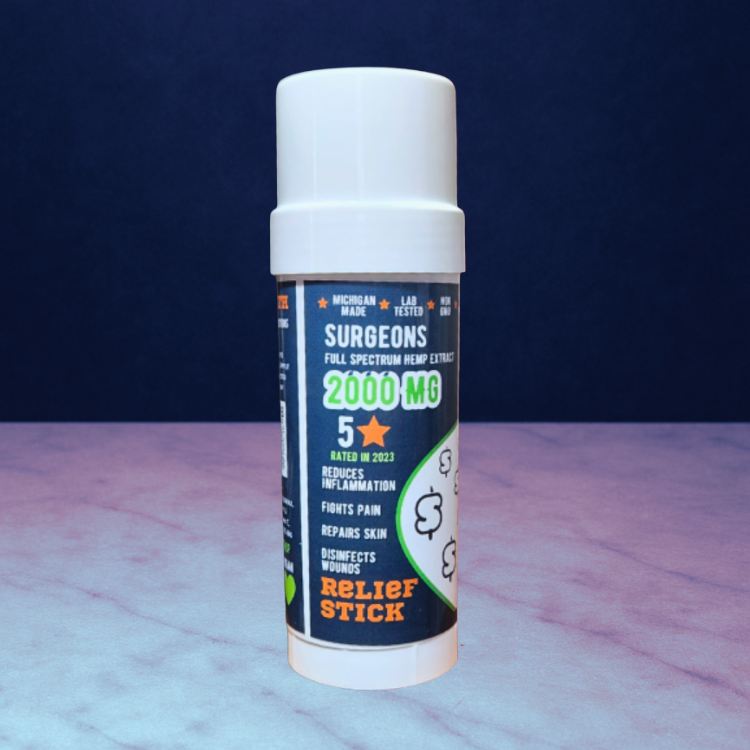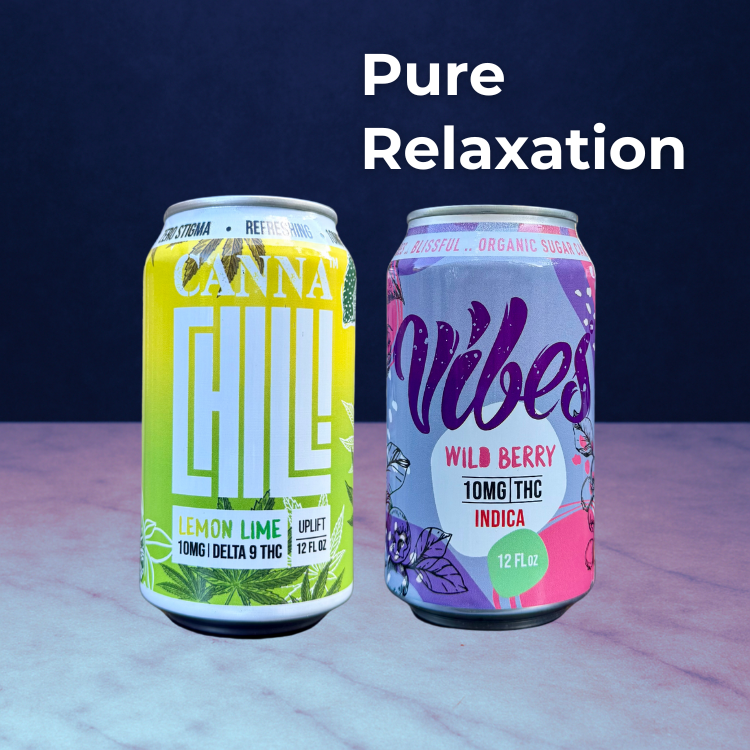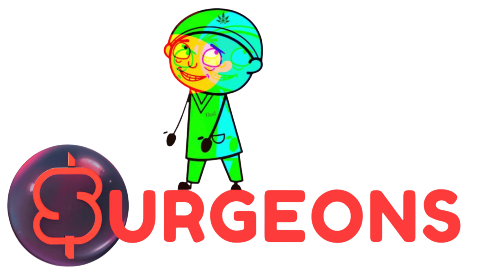Surgeons Online Cannabinoid Academy
Insomnia Solutions: Exploring Cannabinoids for Better Sleep
Insomnia Solutions: Exploring Cannabinoids for Better Sleep

Table Of Contents:
- How Cannabinoids Help Improve Sleep and Break Down Insomnia for Better Rest
- What Is Insomnia and How Does It Affect Sleep Quality?
- How Do Cannabinoids Interact With the Body to Influence Sleep?
- What Scientific Evidence Supports Using Cannabinoids for Insomnia?
- How Can You Use Cannabinoids Safely to Improve Sleep?
- What Lifestyle Changes Complement Cannabinoid Use for Better Sleep?
- What Are the Legal and Community Considerations for Using Cannabinoids?
- What Are Common User Experiences and Success Stories With Cannabinoids for Insomnia?
- Frequently Asked Questions
-
Final Thoughts
How Cannabinoids Help Improve Sleep and Break Down Insomnia for Better Rest
Cannabinoids improve sleep quality by modulating the sleep cycle and reducing insomnia symptoms. When insomnia disrupts normal sleep patterns, cannabinoids help reestablish healthy sleep architecture while lowering arousal and anxiety. This article provides concise answers to critical questions regarding insomnia, cannabinoids, and their role in promoting better rest.
What Is Insomnia and How Does It Affect Sleep Quality?
Insomnia is a sleep disorder marked by difficulty initiating or maintaining sleep, resulting in reduced sleep quality and overall rest. Those affected often experience chronic fatigue, impaired cognition, and mood disturbances due to insufficient restorative sleep. Insomnia shortens total sleep time, decreases deep sleep phases, and disrupts the balance of REM sleep. It can be acute—lasting days to weeks—or chronic, persisting for months and impacting overall health.
What Are the Common Symptoms and Types of Insomnia?
Key symptoms of insomnia include trouble falling asleep, frequent awakenings, early morning awakenings, and non-restorative sleep. Cognitive problems and irritability tend to follow. Types include sleep-onset, sleep-maintenance, and terminal insomnia. Acute insomnia is short-lived, while chronic insomnia can be linked to other medical or psychological issues.
How Does Insomnia Impact Physical and Mental Health?
Insomnia hampers the body’s repair process during sleep, leading to increased inflammation, weakened immune function, and metabolic dysregulation. Mentally, it is linked to depression, anxiety, concentration difficulties, and poorer memory retention. Elevated stress hormones like cortisol also strain cardiovascular health, compounding both physical and mental challenges.
What Lifestyle Factors Contribute to Insomnia?
Irregular sleep schedules, excessive screen time, high caffeine or alcohol consumption, poor sleep hygiene, and stress contribute to insomnia. Environmental factors such as noise, light, and an uncomfortable sleeping environment also play roles. Additionally, a sedentary lifestyle and poor diet can worsen the condition, making consistent circadian rhythms essential for quality sleep.
How Do Cannabinoids Interact With the Body to Influence Sleep?

Cannabinoids interact with the endocannabinoid system (ECS) to influence sleep by modulating neurotransmitter release and reducing arousal. They regulate sleep patterns by binding to cannabinoid receptors in brain regions that control sleep regulation and anxiety.
What Are Cannabinoids and How Do They Work in the Endocannabinoid System?
Cannabinoids are compounds derived from the cannabis plant or produced naturally by the body. They act by binding to CB1 and CB2 receptors, modulating mood, appetite, pain, and sleep. This receptor binding reduces excessive neuronal activity, promoting calmness and easing the onset of sleep.
Which Cannabinoids Are Most Effective for Sleep?
Cannabidiol (CBD) and tetrahydrocannabinol (THC) are the most effective cannabinoids for sleep. CBD is non-psychoactive and helps reduce anxiety and inflammation, while low doses of THC can induce drowsiness. Optimized formulations that balance CBD and THC support a smoother transition into both non-REM and REM sleep without undesirable psychoactive effects.
How Do Cannabinoids Affect Sleep Cycles and Insomnia Symptoms?
Cannabinoids decrease sleep-onset latency and reduce nighttime awakenings while extending the duration of deep, slow-wave sleep. They help balance REM sleep and mitigate symptoms like restlessness and fragmented sleep by reducing stress and modulating the hypothalamic-pituitary-adrenal (HPA) axis, leading to more regulated sleep cycles.
What Scientific Evidence Supports Using Cannabinoids for Insomnia?
Numerous clinical trials and observational studies indicate that cannabinoids can improve sleep metrics and reduce insomnia symptoms. Research shows they modulate brain activity connected to sleep regulation, enhance sleep duration, and increase deep sleep. Preclinical studies also suggest that cannabinoids help lower anxiety and pain—common factors in sleep difficulties.
What Do Clinical Studies Say About Cannabinoids and Sleep?
Clinical studies have reported that cannabinoid formulations reduce sleep-onset latency and improve overall sleep quality. For example, controlled trials indicate that CBD can reduce anxiety and enhance sleep over several weeks. In patients with chronic pain and sleep disturbances, controlled doses have led to better sleep continuity and subjective satisfaction, suggesting that cannabinoid treatments may serve as alternatives or adjuncts to conventional sleep medications.
Are There Risks or Side Effects When Using Cannabinoids for Sleep?
Cannabinoids are generally well tolerated, but potential side effects include daytime drowsiness, dry mouth, appetite changes, and sometimes anxiety at high doses. These side effects are dose-dependent and can often be minimized with proper titration and medical guidance. Compared to traditional sleep aids, cannabinoids typically carry a lower risk of dependency and fewer withdrawal issues, though individualized dosing is important—particularly for vulnerable populations.
How Do Cannabinoids Compare to Traditional Sleep Aids?
When compared to traditional sleep aids like benzodiazepines and nonbenzodiazepine hypnotics, cannabinoids have a lower risk of dependence and fewer next-day cognitive impairments. Traditional medications often lead to tolerance and rebound insomnia, while cannabinoids more naturally modulate the sleep cycle. Additionally, the dual action of reducing anxiety and pain makes them a promising, holistic alternative for managing insomnia.
How Can You Use Cannabinoids Safely to Improve Sleep?

Safe use of cannabinoids for sleep involves following recommended dosages, choosing appropriate consumption methods, and combining use with good sleep hygiene. Initiating use at low doses under medical supervision and gradually adjusting based on response is key to achieving improved sleep quality.
What Are the Recommended Dosages for Cannabinoids in Treating Insomnia?
For insomnia, dosages typically range from 5 to 10 mg of THC when combined with CBD in low to moderate formulations. For CBD alone, doses between 25 to 50 mg per day are common for reducing anxiety and promoting sleep. Starting slowly and monitoring the body’s response over several days or weeks helps determine the optimal dosage, taking into account factors like body weight, metabolism, and insomnia severity.
What Are the Best Methods of Consuming Cannabinoids for Sleep?
Effective delivery methods include sublingual tinctures, capsules, and edibles, all of which provide varying durations of release. Sublingual tinctures offer rapid absorption and adjustable effects, while capsules and edibles deliver sustained release that can support sleep maintenance. Vaporization is an option for immediate effects, although its shorter duration may not sustain sleep through the night.
How Should Cannabinoids Be Integrated With Sleep Hygiene Practices?
Cannabinoids work best when paired with proper sleep hygiene practices. Maintaining a consistent sleep schedule, creating a dark and quiet sleep environment, and avoiding caffeine or electronic screens before bed enhance their effectiveness. For instance, taking a cannabinoid supplement 30–60 minutes before bedtime, followed by calming pre-sleep activities like reading or meditation, can help create an optimal environment for sleep.
What Lifestyle Changes Complement Cannabinoid Use for Better Sleep?
Complementary lifestyle changes include healthy habits that support the circadian rhythm and overall sleep quality. A routine that includes balanced nutrition, regular physical activity, and effective stress management can enhance the sleep-inducing effects of cannabinoids.
How Does Sleep Hygiene Improve Insomnia Symptoms?
Establishing regular sleep routines signals the body to prepare for rest. Consistent bedtimes, turning off bright screens, and optimizing the sleep environment help synchronize the body’s internal clock. These practices reduce sleep-onset latency and improve sleep continuity, thereby supporting the effectiveness of cannabinoid use.
What Dietary and Exercise Habits Support Restful Sleep?
Diet plays a vital role in sleep quality; foods rich in magnesium, tryptophan, and melatonin can naturally promote sleep. A balanced diet that avoids heavy meals near bedtime prevents discomfort and acid reflux. Regular aerobic exercise, especially when done earlier in the day, reduces stress and enhances sleep. When combined with cannabinoids, these dietary and physical activity habits help prime the body for deeper, more restorative sleep.
How Can Stress Management Enhance Cannabinoid Effectiveness?
Effective stress management techniques—such as mindfulness meditation, deep breathing, yoga, and progressive muscle relaxation—reduce cortisol levels and calm the mind. Lower stress levels allow cannabinoids to work more efficiently, supporting a smoother transition to sleep without the interference of stress-induced arousal.
What Are the Legal and Community Considerations for Using Cannabinoids?

Using cannabinoids requires understanding regional legal regulations, sourcing quality products, and engaging with reliable support networks. Compliance with local laws and verified product testing are crucial for safe use.
What Is the Legal Status of Cannabinoids for Sleep in Different Regions?
Legal status varies significantly by jurisdiction. In many countries and several U.S. states, CBD products are available with few restrictions, while THC-containing products remain controlled. Regulations often stipulate that cannabinoid products be derived from hemp with less than 0.3% THC. Consumers should verify local laws and guidelines before purchasing or using these products.
Where Can You Find Reliable Information and Support Communities?
Reliable sources include healthcare providers, accredited research publications, and reputable online forums dedicated to sleep research and cannabinoid therapies. Institutions like the Mayo Clinic and peer-reviewed journals offer evidence-based information. Additionally, online communities and social media groups provide practical insights and real-world experiences for users.
How to Choose Quality Cannabinoid Products for Sleep?
Selecting quality products requires looking for product transparency, third-party lab testing, and clear labeling of cannabinoid content. Consumers should seek manufacturers with established reputations, certifications, and detailed product information regarding dosage and cannabinoid ratios. Organic certifications, extraction methods, and customer testimonials are also useful indicators of product quality and efficacy.
What Are Common User Experiences and Success Stories With Cannabinoids for Insomnia?
Many users report that cannabinoids improve sleep quality by reducing sleep-onset latency and nighttime awakenings. Regular use has been associated with feeling less anxious and more refreshed upon waking, with many describing a more restorative sleep experience.
What Do Users Report About Sleep Improvements Using Cannabinoids?
Users commonly note that cannabinoids help them fall asleep faster and maintain deeper, uninterrupted sleep. Reports often mention waking up feeling refreshed and better able to concentrate during the day, with noticeable reductions in the time required to initiate sleep and fewer night-time disruptions. These testimonials support cannabinoids as a natural alternative with fewer side effects than traditional medications.
What Challenges Do Users Face When Using Cannabinoids for Sleep?
Despite benefits, some users report challenges such as inconsistent dosing, product quality variability, and initial side effects like drowsiness or dry mouth. A period of adjustment is sometimes needed as the body acclimates to cannabinoid use. Other challenges include ensuring products meet legal standards and navigating a variety of product formulations differing in potency and composition.
How Can Sharing Experiences Help Others With Insomnia?
Sharing user experiences builds a helpful network where individuals can learn about effective dosing, product selection, and integrating cannabinoids with lifestyle improvements. Success stories and community discussions provide practical tips for managing side effects and inform regulatory and research developments in cannabinoid-based sleep aids.
Frequently Asked Questions
Q: Can cannabinoids be used long-term to improve sleep? A: Yes, many users incorporate cannabinoids into their nightly routine without significant tolerance or dependency issues, although long-term effects should be monitored by a healthcare provider.
Q: How quickly do cannabinoids affect sleep quality? A: Acute effects, such as reduced sleep onset latency, may be noticeable within a few days, while overall sleep quality and deep sleep improvements may take several weeks of consistent use.
Q: Are there different cannabinoid formulations for different sleep disorders? A: Formulations vary—with some products emphasizing CBD for anxiety-related sleep issues and others including low levels of THC to induce drowsiness. The best choice depends on individual needs and specific sleep disorders.
Q: How should a new user start with cannabinoids for sleep? A: New users should begin with low doses, monitor their responses closely, and consult with a healthcare professional to adjust their regimen based on personal needs.
Q: Can cannabinoids interact with other medications for insomnia? A: Yes, cannabinoids may interact with other medications. It is essential for individuals taking additional sleep aids or medications to consult their doctor to avoid potential interactions.
Final Thoughts
Cannabinoids offer promising support for improving sleep quality by naturally regulating sleep cycles and reducing insomnia symptoms. Their integration with proper sleep hygiene, dietary practices, and stress management has shown potential in both clinical studies and user experiences. While legal and product quality considerations remain important, current evidence and testimonials support the use of cannabinoids as a viable alternative or supplement to traditional sleep aids. As research and legal frameworks evolve, cannabinoids may transform insomnia management, providing a safer and more holistic approach to achieving restorative sleep.

The Relief Stick
Pair text with an image to focus on a product, collection or blog post. Add details on availability, style or even provide a review.
Contact Us
Pair text with an image to focus on a product, collection or blog post. Add details on availability, style or even provide a review.

Delta 9 THC Seltzerss
Pair text with an image to focus on a product, collection or blog post. Add details on availability, style or even provide a review.
Reviews
Pair text with an image to focus on a product, collection or blog post. Add details on availability, style or even provide a review.



